The Island’s emergency infrastructure, established to deal with natural disasters and critical housing needs, was put to a different test last week when nearly 50 Venezuelan migrants arrived unexpectedly at Martha’s Vineyard Airport.
Leaning on existing relationships and protocols, a web of Island networks and individuals mobilized to provide food, shelter and resources to the group, which included men, women and children.
“Our response was humanitarian to a crisis that was politically created,” State Rep. Dylan Fernandes told the Gazette in a phone call this week.
The Gazette interviewed many of those involved in the response effort to reconstruct exactly how it unfolded.
Nearly all deferred credit to their peers and people on the ground for everything from securing food and shelter to working with lawyers and government officials to determine the best course of action for the migrants.
“I was part of the effort, but it was a collaboration,” said Dukes County manager Martina Thornton. “It was not a single agency or person — and a lot of volunteers.”
Following a two-day stay at St. Andrew’s Church in Edgartown, the migrants were moved to Joint Base Cape Cod last Friday. There, they have received shelter, care and resources through state and nonprofit organizations. State officials told the Gazette this week that some have already begun to relocate themselves, staying with family and friends across the U.S.
“Two of the individuals to my understanding departed on Monday to rendezvous with family in the New York city region,” State Sen. Julian Cyr said in a phone call Thursday. “I would expect to see more individuals leaving the temporary emergency shelter in the coming days as they’re essentially figuring out their plans and rebuilding their lives.”
A large group of volunteers, public officials and community leaders gathered last Friday at St. Andrew’s church for an emotional goodbye, sharing photos, hugs and tears as the migrants departed for Cape Cod. In the aftermath of the migrants’ stay on Martha’s Vineyard, many volunteers and public officials who were key to the local response were quick to say it was an Island-wide effort.
“It took quite a lot of logistical work,” said Oak Bluffs fire chief Nelson Wirtz, who also serves as chairman of Dukes County Emergency Services. “But I don’t think that any of us could have pulled it off without the rest of us.”
The group of migrants arrived on the Island via two planes sent by Gov. Ron DeSantis. Originating in San Antonio, Tex., both planes stopped in Crestview, Fla. en route to the Vineyard. One made an additional stop in South Carolina and the other in North Carolina, according to flight plans available online.
In a phone call to the Gazette this week, Martha’s Vineyard airport director Geoffrey Freeman said when the migrants arrived he treated it like any other landing. The group disembarked from the planes, and were immediately shuttled in pre-organized vans to Martha’s Vineyard Community Services, he said.
“We’re not here to socially profile or vet,” Mr. Freeman said. “I was not notified until they arrived at Martha’s Vineyard Community Services that there was an issue.”
At Martha’s Vineyard Community Services, executive director Beth Folcarelli was among the first to respond.
“I went outside to say hello and assess the situation, and I discovered that there were no English speakers,” Ms. Folcarelli said.
She immediately began putting calls out to organizations and individuals she thought could help, and word of the situation quickly spread. Calls went out to Chief Wirtz, Dukes County manager Martina Thornton, county sheriff Bob Ogden and Martha’s Vineyard Regional High School principal Sarah Dingledy, among many others.
The migrants were transported to the high school for a brief period, where Ms. Dingledy opened the cafeteria for food and shelter. Faculty and students served as translators as officials considered next steps.
“We had been told they hadn’t eaten since 6 a.m.,” Chief Wirtz said.
With the help of Janet Constantino, an employee of community services who volunteers for the Island’s homeless shelter, a decision was made to move the migrants to St. Andrew’s Church, where a homeless shelter is operated during the winter.
Chief Wirtz said the Oak Bluffs school is usually the hub for emergencies such hurricanes and other natural disasters, but it wasn’t properly equipped to handle this situation — especially not during the school year.
Resources were diverted to St. Andrew’s, where the migrants arrived by school bus and stayed for two nights before leaving for Cape Cod.
Father Chip Seadale, minister at the church, said he was attending a clergy conference in North Carolina when he got the call from Ms. Constantino.
“She needed to find a place for people to stay that night,” he said.
He said the church had already been volunteered for the task and he immediately agreed. With no access to television at the conference, Mr. Seadale said he followed the situation through phone calls and news alerts.
“I was doing interviews on the plane,” he said. “It was this big thing, but I couldn’t watch it on TV.”
Over the next two days, Islanders brought food, money, supplies, clothes, toys and games to the church. Before heading to the ferry last Friday, several of the migrants with emergency dental problems were treated by Island dentists.
Fundraising efforts for the migrants began through GoFundMe pages and direct donations. A donation fund set up by Martha’s Vineyard Community Services raised $269,000, and the Martha’s Vineyard Community Foundation received tens of thousands of dollars.
“Contributions flowed to numerous different organizations here,” said community foundation executive director Emily Bramhall.
Both community services and the community foundation are considering options for using the funds raised. Ms. Bramhall said broad immigration efforts as well as rental assistance for the migrants are all on the table.
Mr. Fernandes said the state is also considering disbursing federal money to the Vineyard to recoup costs spent during the effort.
“We have a set pot of money that we’ve already had in the budget … for refugee-related expenses,” he said.
Beyond financial contributions, many on the Island donated their time at St. Andrew’s. Setting up beds, cooking food and playing games, some developed personal relationships with the migrants during their brief stay.
“I stayed there, I didn’t leave,” said Harbor Homes shelter manager Lisa Belcastro.
Ms. Belcastro was instrumental in handling the situation at St. Andrew’s. Staying awake for two nights, she aided migrants and listened to the stories, many filled with tragedy, of their journeys to the United States.
“It was easy to stay awake because I didn’t want to miss a moment,” she said.
Chief Wirtz said the shelter at St. Andrew’s was always intended to be temporary, but provided much-needed resources like beds, plumbing and a shower.
“We knew we were going to need resources beyond what the Island could provide,” he said.
Chief Wirtz began working with Sheriff Ogden to coordinate with the state government. Chief Wirtz said he contacted the Massachusetts Emergency Management Agency (MEMA) almost immediately after the migrants arrived.
It was through MEMA that the migrants were transported to Joint Base Cape Cod, where many are still sheltering. There, they have received medical assistance and have been given opportunities to take buses into town to explore the Cape.
“Everyone is settled in at the facility and everyone I have talked to is very comfortable,” Mr. Fernandes said. “They are in really good shape.”
In the days since the migrants’ departure from the Vineyard, many involved in the response have received negative phone calls, emails and messages on social media. This week, a plane dragging a banner that read “Vineyard Hypocrites” circled the Island.
“The negative comments are coming from people who don
’t have any knowledge of what the situation was on the ground,” Chief Wirtz said. “My job … is to take care of the people that are in front of me.”
Going forward, the state will continue to provide resources for the migrants and help them move on to more permanent housing situations. Legal assistance has been offered by several lawyers, and a class action lawsuit was filed against Governor DeSantis this week by a Boston civil rights firm.
The migrants are free to leave the Joint Base whenever they please, state officials told the Gazette. Some have already headed to New York, and some have plans to connect with resources in places across the country. For others, a new home could emerge in a region the migrants never intended to visit.
“My office has received several offers from folks on Martha’s Vineyard for people who have offered housing on-Island,” Mr. Fernandes said.
Thomas Humphrey and Brooke Kushwaha contributed reporting.

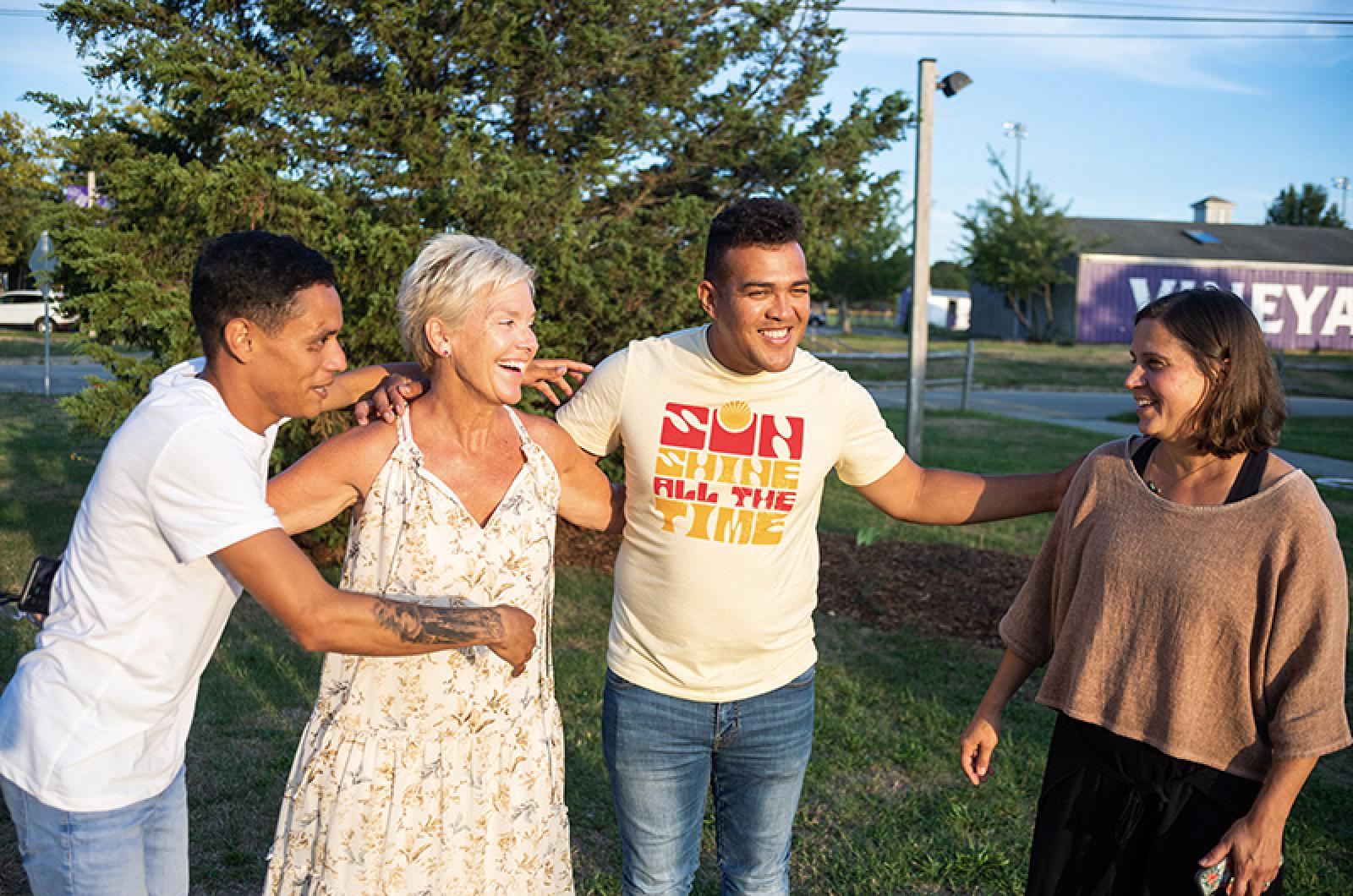
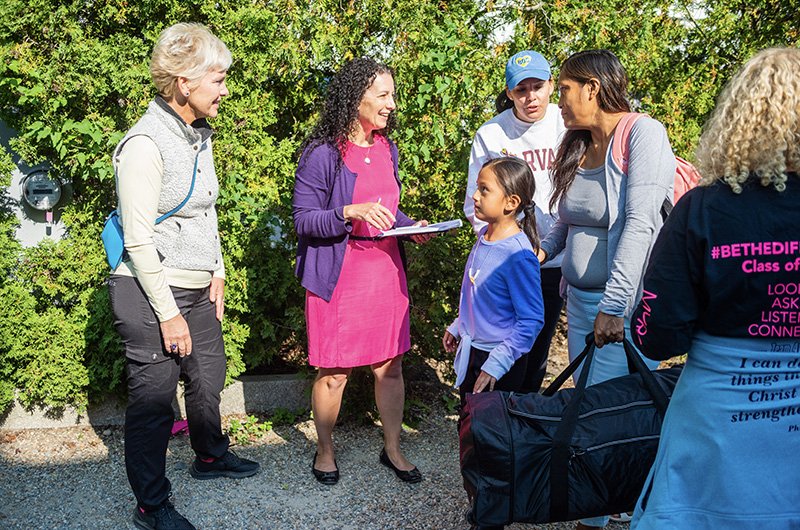
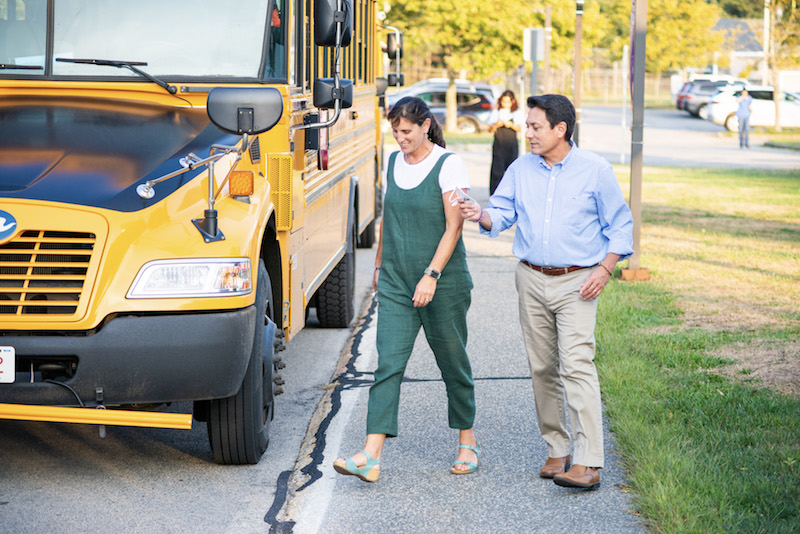
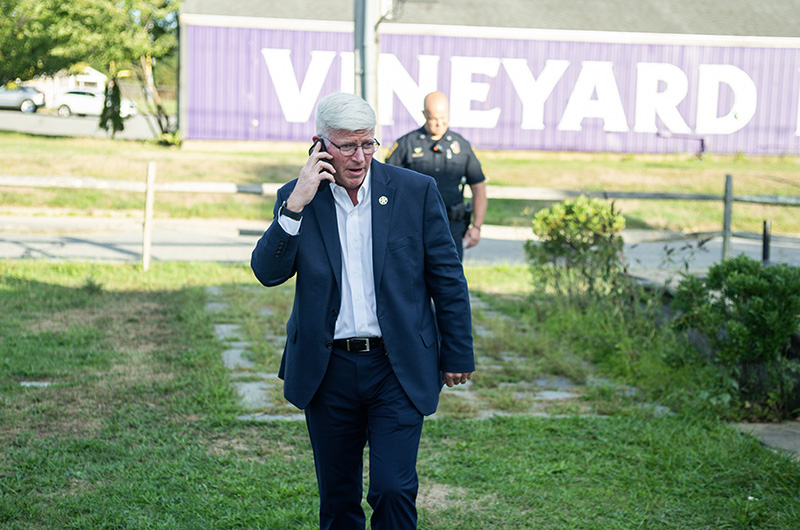

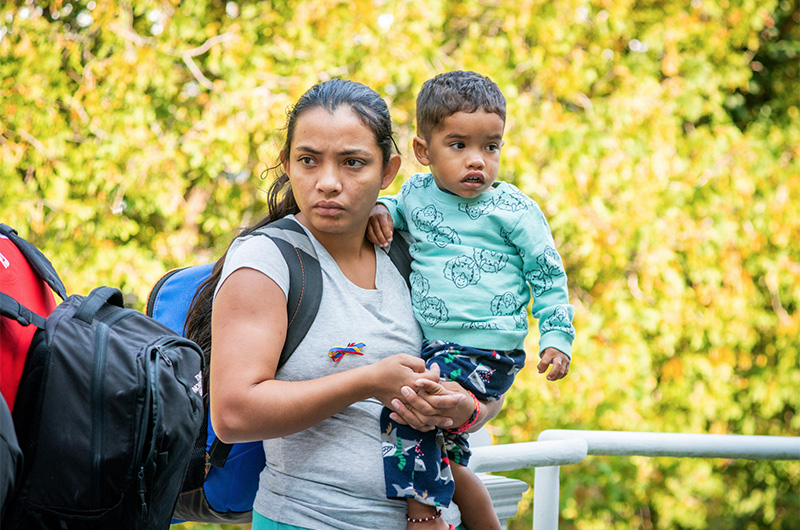





Comments (9)
Comments
Comment policy »